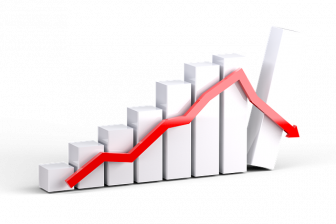 The UK will avoid a repeat of the double-digit house price declines seen during the global financial crisis despite the current economic turmoil, Knight Frank has predicted.
The UK will avoid a repeat of the double-digit house price declines seen during the global financial crisis despite the current economic turmoil, Knight Frank has predicted.
In the estate agency’s latest market observations and commentary, it said low levels of unemployment and well-capitalised banks will prevent price levels dipping to the levels seen during 2008-09.
Tom Bill, head of UK residential research at Knight Frank, said he expected the housing market to enter a “more predictable phase” once there is relative stability in interest rates.
However, Bill observed that more certainty will underpin transaction volumes but not necessarily prices. “In fact, higher trading volumes would only hasten the price correction we expect will take place,” he said.
Bill added that Knight Frank expects UK prices to “revert to where they were in the summer of 2021”.
Knight Frank said that while the cut in stamp duty announced in the mini-budget could help liquidity, any benefit was eclipsed by the prospect of higher mortgage costs, and new chancellor Jeremy Hunt will be hoping to avoid a negative reaction in the bond markets from his budget scheduled for 17 November.
With new prime minister Rishi Sunak looking to “wind back the clock” on his predecessor Liz Truss’s time in office and restore confidence in the debt markets, Knight Frank said there was evidence that the impact of the mini-budget was being reversed.
“By Wednesday, UK gilt yields had either fallen below their pre-mini-budget level or were heading in that direction, depending on their maturity,” Bill said.
“The five-year swap rate, which is used to price most UK mortgages, was hovering around 4.5%, a shade higher than it was before former chancellor Kwasi Kwarteng got to his feet to outline the government’s economic plan on 23 September.”
The rate may decline further, depending on the content of the budget and accompanying report from the Office for Budget Responsibility, Bill added.
How far Sunak manages to turn back the clock will be telling, he said, observing that some lenders are already dropping their rates.
However, Bill insisted that the new prime minister “won’t be able to travel much further back in time than late August” in the short term.
“Interest rate expectations had been rising over the summer as energy costs pushed up inflation, which hit 10.1% in mid-August, and the bank rate will inevitably rise from its current level of 2.25% on 3 November,” he said.
UK house prices to fall as mortgage rate hike hits ‘buying power’


Comments are closed.